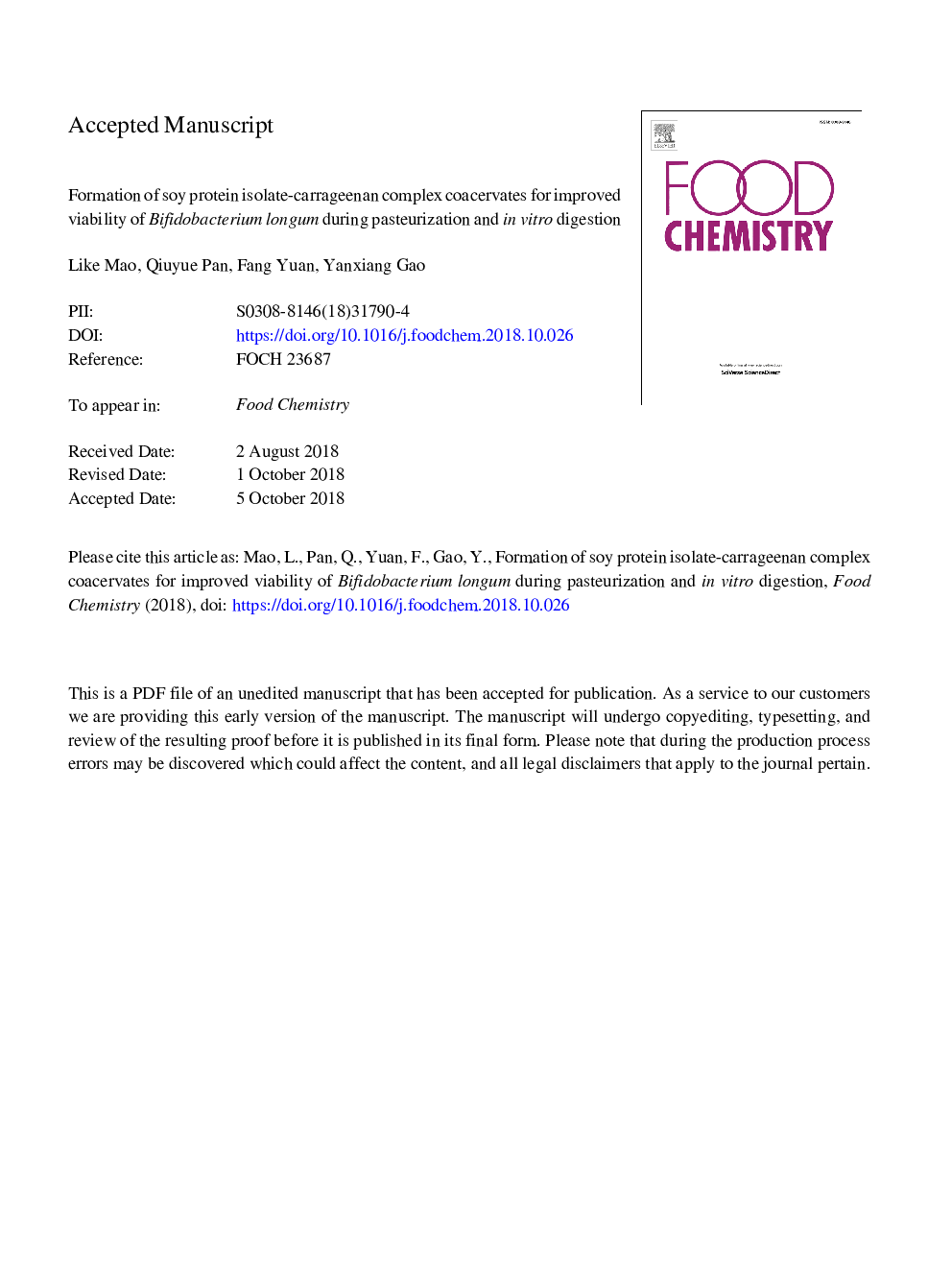| Article ID | Journal | Published Year | Pages | File Type |
|---|---|---|---|---|
| 11011797 | Food Chemistry | 2019 | 33 Pages |
Abstract
Soy protein isolate (SPI) and carrageenan (IC) complex coacervates were formed through electrostatic attractions for encapsulating Bifidobacterium longum. The effects of pH (2.0-5.0) and SPI:IC mass ratios (10:1, 15:1, 20:1) on coacervate yield, entrapment efficiency and viability of the probiotic bacteria were investigated. The coacervates produced at pH 3 had higher yields and entrapment efficiency, and a SPI:IC mass ratio of 10:1 produced a complex coacervate with more compact microstructure. Compared to the native ones, the bacteria encapsulated in the coacervates had significantly improved viability during storage (4â¯Â°C), pasteurization (85â¯Â°C for 5, 10 and 30â¯min) and in vitro dynamic gastric and intestinal digestion. The findings also suggested that the coacervate with a SPI:IC ratio of 10:1 was more capable to protect the bacteria from loss against different stresses. This study provides a novel approach for designing efficient microcapsules containing probiotic bacteria with enhanced functional properties.
Related Topics
Physical Sciences and Engineering
Chemistry
Analytical Chemistry
Authors
Like Mao, Qiuyue Pan, Fang Yuan, Yanxiang Gao,
